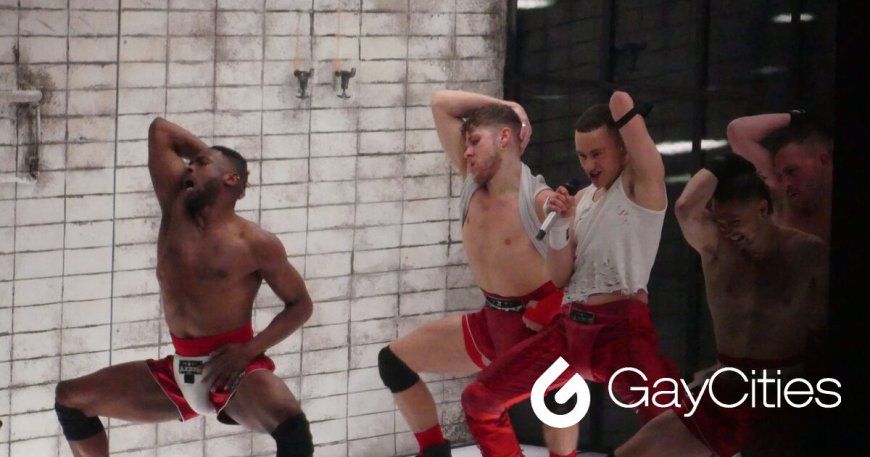Eurovision may be “gay Christmas,” but the big queer party was definitely hot
A star-studded Malmö party featured queer celebrities and contestants - including nonbinary Swiss winner Nemo.


Sweden’s third-largest city, Malmö, hosted the Eurovision Song Contest last week and over the weekend. Despite some tensions and protests due to Israel’s participation, the 59th edition of the wonderfully over-the-top musical extravaganza that’s often called “Queer Christmas” went off nearly without a hitch.
This year was the queerest Eurovision ever, with a record eight LGBTQ+ singers among this year’s 37 contestants, including three nonbinary entrants alongside a broad assortment of gays, lesbians, queers, and a bisexual. (Nine singers from the 2021 edition now identify as LGBTQ+, but they weren’t all out then.)

Pack your bags, we’re going on an adventure
Subscribe to our weekly newsletter for the best LGBTQ+ travel guides, stories, and more.
Subscribe to our Newsletter today
2024 also marked some major anniversaries for Eurovision winners whose careers boomed after taking home the top prize. Though hopes were dashed for an ABBA reunion (except the AI hologram version) to mark the unbelievable 50 years since the Swedish group took the Eurovision crown for “Waterloo” in 1974, luckily, Austria’s Conchita Wurst was present in Malmö to celebrate the tenth anniversary of her 2014 “bearded drag queen” win with “Rise Like a Phoenix.”

Eurovision sponsor Booking.com honored Wurst with a star-studded Malmö luncheon on Saturday attended by the likes of Shane Jenek, better known to the world as his drag self Courtney Act; Irish twins Jedward, who represented Ireland at Eurovision two years in a row in 2011 and 2012; and Sheldon Riley, who sang at Eurovision for Australia in 2022. Wurst wowed the gathering with a stellar performance of her soaring Eurovision-winning ballad.
Later that evening at the Grand Final at Malmö Arena, Wurst honored ABBA with a rendition of “Waterloo” flanked by Charlotte Perrelli and Carola, both former Eurovision singers for Sweden.

Last year’s winner, Loreen, who identifies as bisexual, made her presence known in Malmö throughout the week with a pop-up store selling—what else?—Loreen merch, including clothing and bags. The Swedish singer is the first woman to win Eurovision twice, first with “Euphoria” in 2012 and then last year with “Tattoo,” a version of which she performed again at this year’s final.

With just under 350,000 people, Malmö is less than 45 minutes by train from Copenhagen, Denmark, much closer physically and spiritually than Stockholm, which is four and a half hours away. Sweden’s biggest city could not host Eurovision this year because its largest arena had already been booked for Taylor Swift’s Eras tour.

Four LGBTQ+ performers made it through the Eurovision semifinals to this year’s Grand Final, including Lithuania’s Silvester Belt and Ireland’s shockingly underworldly Bambie Thug, whose home country fans were out in force in Malmö, many donning shirts demanding that voters “Crown the witch.”

The UK’s Olly Alexander (Years & Year, “It’s a Sin”) was by far the most famous of this year’s competitors, and expectations were high that he might take home the crown for Britain. Alexander came in a disappointing 18th in Saturday’s final with his song “Dizzy,” but another LGBTQ+ singer, Switzerland’s Nemo, shot to the top spot with their song “The Code,” becoming the first nonbinary contestant to win the competition—fitting, given that their song is about their journey to acceptance of their nonbinary identity.

If history is any indication, chances are good that we’ll hear much more from the charming and talented Nemo in the coming years. The last time Switzerland took home the Eurovision crown in 1988, the singer was a little-known young Canadian named Celine Dion.

 Mark
Mark 





